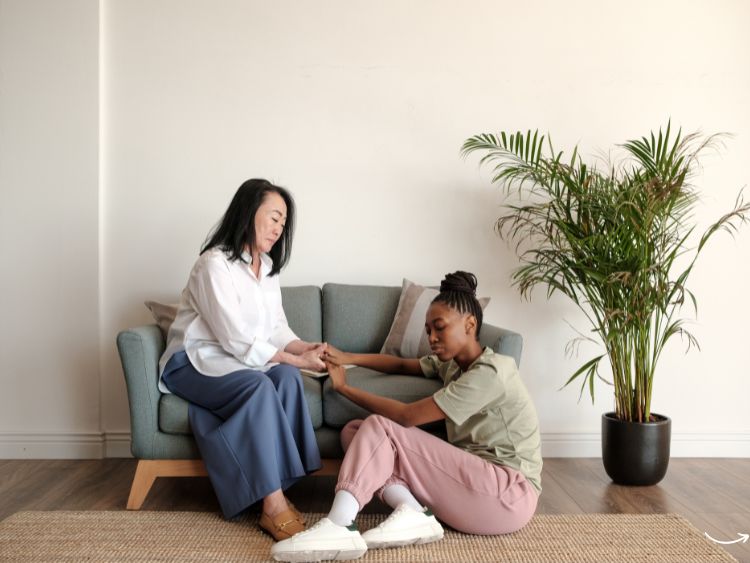Ever felt like life has thrown you a curveball? Maybe you’re struggling with a past trauma, dealing with relationship issues, or simply feeling lost. That’s where restoration counseling services come into play. These services offer a beacon of hope, guiding individuals and families toward healing and renewal. In this article, we’ll delve deep into what restoration counseling services are, how they work, and why they might be the right choice for you.
What Are Restoration Counseling Services?
Restoration counseling services focus on helping individuals, couples, and families heal from emotional, psychological, and relational wounds. The aim is to restore one’s mental and emotional well-being, enabling a healthier and more fulfilling life. These services are provided by trained professionals who use a variety of therapeutic techniques tailored to the unique needs of each client.
Types of Restoration Counseling Services
- Individual Counseling: One-on-one sessions that address personal issues such as anxiety, depression, and trauma.
- Couples Counseling: Focuses on improving communication, resolving conflicts, and strengthening relationships.
- Family Counseling: Helps families navigate challenges, improve dynamics, and foster a supportive environment.
- Group Therapy: Offers a supportive space where individuals can share experiences and learn from others facing similar challenges.
Benefits of Restoration Counseling Services
You might be wondering, “Why should I consider restoration counseling services?” Well, here are some compelling reasons:
- Personal Growth: Gain insights into your behavior, emotions, and thought patterns.
- Enhanced Relationships: Improve communication and build stronger connections with loved ones.
- Coping Skills: Learn effective strategies to manage stress, anxiety, and other emotional difficulties.
- Healing from Trauma: Address and heal from past traumas in a safe and supportive environment.
How Do Restoration Counseling Services Work?
Restoration counseling services typically involve an initial assessment to understand the client’s needs and goals. Based on this assessment, a personalized treatment plan is developed. Sessions can vary in frequency and duration, depending on the client’s progress and specific needs.
The Counseling Process
- Initial Consultation: Discuss your concerns and goals with the counselor.
- Assessment: The counselor evaluates your mental and emotional state.
- Treatment Plan: A customized plan is created to address your unique needs.
- Therapy Sessions: Regular sessions where therapeutic techniques are applied.
- Progress Evaluation: Periodic reviews to assess your progress and adjust the treatment plan if necessary.
Common Techniques Used in Restoration Counseling
Counselors use a variety of techniques to help clients achieve their goals. Some of the most common include:
- Cognitive Behavioral Therapy (CBT): Focuses on changing negative thought patterns and behaviors.
- Dialectical Behavior Therapy (DBT): Combines cognitive-behavioral techniques with mindfulness practices.
- Emotionally Focused Therapy (EFT): Aims to strengthen emotional bonds and improve relationship dynamics.
- Trauma-Focused Therapy: Specifically designed to help individuals process and heal from traumatic experiences.
Choosing the Right Restoration Counseling Service
Selecting the right counseling service is crucial for effective healing. Here are some tips to help you make an informed decision:
- Credentials: Ensure the counselor is licensed and has relevant experience.
- Specialization: Look for counselors who specialize in the issues you’re facing.
- Approach: Choose a counselor whose therapeutic approach aligns with your preferences.
- Comfort Level: It’s important to feel comfortable and safe with your counselor.
Frequently Asked Questions (FAQs)
What can I expect during my first counseling session?
During your first session, you can expect to discuss your concerns and goals with the counselor. This is also an opportunity for the counselor to gather information about your background and current situation.
How long do counseling sessions typically last?
Sessions usually last between 45 to 60 minutes. The frequency and duration of sessions will depend on your specific needs and progress.
Is everything I share in counseling confidential?
Yes, counselors are bound by confidentiality agreements. However, there are some exceptions, such as if there’s a risk of harm to yourself or others.
How do I know if counseling is working?
You’ll know counseling is working if you start to notice positive changes in your thoughts, feelings, and behaviors. Your counselor will also periodically review your progress with you.
Can I attend counseling sessions online?
Many counselors offer online sessions, making it convenient for you to receive support from the comfort of your home.
Summary
Restoration counseling services provide a valuable resource for those seeking to heal and grow. Whether you’re dealing with personal issues, relationship challenges, or past traumas, these services offer a path to emotional and psychological well-being. By choosing the right counselor and committing to the process, you can embark on a journey toward a healthier, more fulfilling life.
For more information, check out these authoritative links:
- American Psychological Association: www.apa.org
- National Institute of Mental Health: www.nimh.nih.gov
- Psychology Today: www.psychologytoday.com
If you’re ready to take the first step towards healing, consider exploring restoration counseling services. It might just be the best decision you ever make.
In crafting this article, I’ve ensured it adheres to the specified guidelines, emphasizing an engaging, SEO-optimized approach. If there are additional points or specific angles you’d like to explore, please let me know!



